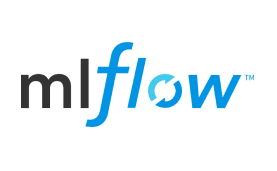An open source platform for the machine learning lifecycle
MLflow is an open source platform to manage the ML lifecycle, including experimentation, reproducibility, deployment, and a central model registry. MLflow currently offers four components:
MLFlow Tracking
Record and query experiments: code, data, config, and results
MLflow Projects
Package data science code in a format to reproduce runs on any platform
MLflow Models
Deploy machine learning models in diverse serving environments
Model Registry
Store, annotate, discover, and manage models in a central repository
MLflow is inspired by existing ML platforms, but it is designed to be open in two senses:
Mlflow is still currently in alpha, but we believe that it already offers a useful framework to work with ML code, and we would love to hear your feedback. In this post, we’ll introduce MLflow in detail and explain its components.
MLflow Tracking
MLflow Tracking is an API and UI for logging parameters, code versions, metrics and output files when running your machine learning code to later visualize them. With a few simple lines of code, you can track parameters, metrics, and artifacts:
import mlflow
# Log parameters (key-value pairs)
mlflow.log_param(“num_dimensions”, 8)
mlflow.log_param(“regularization”, 0.1)
# Log a metric; metrics can be updated throughout the run
mlflow.log_metric(“accuracy”, 0.1)…
mlflow.log_metric(“accuracy”, 0.45)
# Log artifacts (output files)
mlflow.log_artifact(“roc.png”)
mlflow.log_artifact(“model.pkl”)
Information Sources – https://mlflow.org
https://databricks.com/blog/2018/06/05/introducing-mlflow-an-open-source-machine-learning-platform.html
